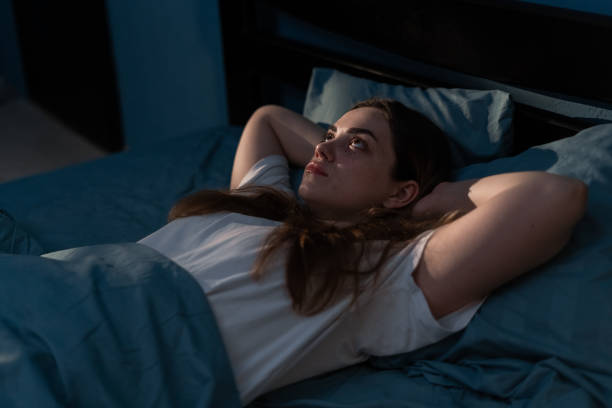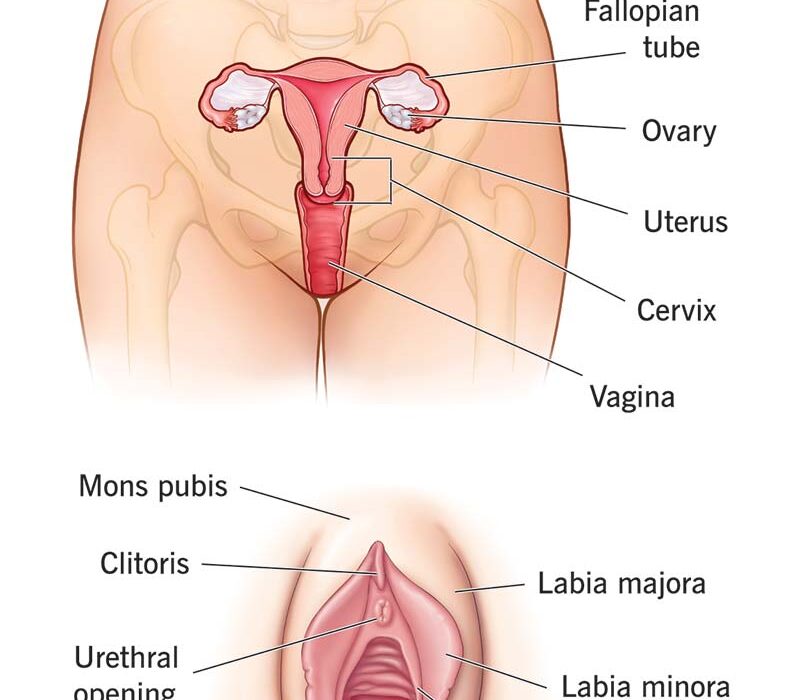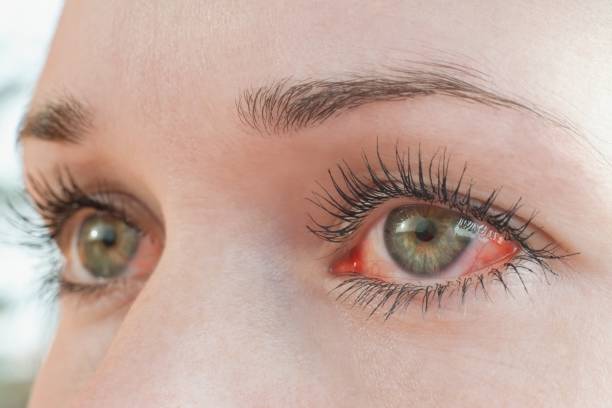Sleep is often hailed as the body’s most natural healer—a nightly ritual that restores mental clarity, balances emotional well-being, and resets the delicate rhythms of our physiology. Neuroscience has shown that while we rest, our brains don’t simply shut down. They fine-tune our memories, sweep away metabolic waste, and regulate the intricate symphony of hormones that orchestrate everything from hunger to heart rate.
Yet beneath the tranquility of this nightly restoration lies a disturbing paradox: for millions of people, sleep is not a refuge but a battleground. Disorders like insomnia, sleep apnea, and periodic limb movement disorder rob people of rest and resilience. And now, a growing body of research suggests that these disturbances may do more than fray nerves and fatigue the body—they may slowly erode our ability to hear.
In an era where sleep disorders are increasingly recognized as global public health challenges, the possibility that they may also contribute to hearing loss opens up a provocative new chapter in our understanding of sensory health. Recent findings, including a comprehensive literature review by researchers at the Air Force Medical University in China, shine a spotlight on the intimate, often overlooked relationship between the brain’s nightly rhythms and the fragile world of sound.
Sleep and Hearing: A Dialogue Across Systems
At first glance, sleep and hearing may appear to occupy entirely different domains of human experience. Sleep is the realm of dreams and unconsciousness, while hearing is an alert system—our ears keeping vigil even when our eyes close. But dig deeper, and the biological boundaries between them blur.
Our ability to hear isn’t just the passive reception of sound; it’s a high-order process involving the ears, auditory nerves, and specialized brain regions like the auditory cortex and brainstem. These systems are incredibly energy-dependent and tightly integrated into the body’s vascular and metabolic networks—many of which are regulated during sleep. When sleep becomes disordered, so too can the systems that support auditory function.
The Chinese team’s review, recently published in Neuroscience, emphasizes this bidirectional relationship. Their work suggests that disrupted sleep patterns can aggravate or accelerate hearing loss, and conversely, hearing impairments can degrade sleep quality. The relationship is not simply correlational; it is dynamic and potentially causal in both directions.
The Global Scope of a Sleepless Crisis
Sleep disorders are astonishingly common. According to the World Health Organization, one in three people worldwide will experience a sleep disorder at some point in their lives. Insomnia alone affects an estimated 10-30% of adults, while obstructive sleep apnea—characterized by repeated interruptions in breathing during sleep—is now recognized as a major cardiovascular risk factor.
This epidemic of disordered sleep intersects with another silent crisis: hearing loss. The World Health Organization estimates that over 1.5 billion people live with some degree of hearing loss, and that number is expected to rise as populations age and environmental noise pollution intensifies.
It is within this context that the implications of sleep-related auditory decline become urgent. If poor sleep does indeed lead to hearing degradation, then the global toll of sleeplessness may be far broader than previously imagined.
Listening in the Dark: Sleep Architecture and Auditory Processing
Sleep is not a monolithic state but a highly structured process divided into stages, each with unique physiological functions. Two major types dominate: non-rapid eye movement (NREM) sleep and rapid eye movement (REM) sleep. While REM is often associated with vivid dreams, NREM—especially its deeper stages—appears to play a more active role in maintaining basic sensory and cognitive health.
The review by Peng Zhang, Xiaogang An, and their colleagues points out that during NREM sleep, particularly its slow-wave phase, the brain remains surprisingly attuned to auditory stimuli. This may seem paradoxical—why would the brain continue processing sound during its most restful stage? One theory is that low-level auditory vigilance during sleep evolved as a survival mechanism, allowing humans to remain partially responsive to potential threats while unconscious.
However, sleep disorders may interfere with this delicate auditory balance. Fragmented sleep can prevent the brain from entering and sustaining slow-wave NREM, which may, over time, reduce the robustness of the auditory system’s maintenance cycles. On the flip side, during REM sleep—when the brain is more internally focused—auditory responsiveness is dampened. Disruption of REM could also undermine the neural consolidation processes that help maintain sensory function.
From Sleeplessness to Silence: The Mechanisms Behind the Decline
What could explain how poor sleep harms hearing? The review identifies several possible biological mechanisms.
One likely pathway involves inflammation. Chronic sleep deprivation has been shown to elevate systemic inflammation, which can affect the delicate microvasculature that nourishes the inner ear. The cochlea—the snail-shaped organ that converts sound waves into neural signals—is particularly vulnerable to changes in blood flow and oxidative stress.
Another factor is hypoxia, or oxygen deprivation. In disorders like sleep apnea, repeated episodes of breath-holding during the night can starve tissues of oxygen. The inner ear is highly sensitive to oxygen levels, and even intermittent hypoxia can lead to cell damage and auditory nerve degeneration.
Hormonal imbalances also play a role. Sleep helps regulate cortisol, melatonin, and growth hormone—chemicals that influence everything from immune function to neurogenesis. Disrupted circadian rhythms can impair cochlear repair and regeneration, particularly in response to acoustic trauma or aging.
Finally, there’s the emerging role of neuroplasticity—the brain’s ability to rewire itself. Just as sleep strengthens memory by consolidating neural circuits, it may also help preserve the functional maps of sound in the auditory cortex. Poor sleep could lead to auditory “blurring,” making it harder to distinguish sounds, tones, or speech, especially in noisy environments.
Does Hearing Loss Cause Sleep Problems Too?
Interestingly, the arrow of causation doesn’t just point from sleep to hearing. It may also point the other way.
People with hearing loss often report disrupted sleep. At first, this may seem counterintuitive—wouldn’t reduced auditory input make it easier to fall and stay asleep? But studies show the opposite. Hearing loss can heighten sensitivity to certain background sounds (such as internal bodily noises or low-frequency hums), making it harder to achieve restful sleep. Moreover, the stress and social isolation often associated with auditory impairment can contribute to anxiety and insomnia.
Tinnitus—the persistent perception of phantom sounds such as ringing or buzzing—is a common companion of hearing loss and a well-documented cause of sleep disturbance. For many sufferers, the quiet of night makes these phantom noises more pronounced, transforming the bedroom into a chamber of unwanted sound.
A Call for Integrated Treatments
The implications of this research are vast. If sleep disorders can impair hearing and vice versa, then future medical approaches must take a more holistic view.
Current treatments for hearing loss—such as hearing aids and cochlear implants—primarily address auditory function. Meanwhile, sleep disorders are often managed through behavioral therapy, CPAP machines, or sleep medications. But what if treating insomnia could also help preserve auditory health? Or if improving hearing could, in turn, restore deeper sleep?
The review by Zhang and colleagues encourages clinicians and researchers to move beyond siloed approaches. Sleep and hearing should be studied together, not apart. Integrated interventions—combining audiological care with sleep hygiene education, cognitive behavioral therapy, or anti-inflammatory strategies—could offer more comprehensive, personalized care.
Toward a Future of Rest and Sound
Although many of the biological links between sleep and hearing remain mysterious, the evidence is growing that these two essential processes are deeply intertwined. Disrupted sleep appears to erode auditory health through a combination of vascular, inflammatory, and neurological pathways. Hearing loss, in turn, may worsen sleep by increasing sensory sensitivity, promoting anxiety, and altering brain activity patterns.
The research community is just beginning to unravel this complex relationship. But the questions it raises are profoundly relevant to public health. As the prevalence of both sleep disorders and hearing loss continues to rise globally, understanding how these conditions interact could pave the way for smarter prevention strategies and more effective treatments.
In the end, sleep and hearing are not merely biological functions—they are gateways to perception, memory, and identity. They shape how we experience the world and how the world experiences us. Preserving them is not just a medical necessity—it is a human one.
So the next time you lie awake at night or strain to hear the voice of a loved one, remember: your body is listening, even in sleep. And the silence you seek may hold more answers than noise ever could.
Reference: Peng Zhang et al, Echoes in the night: How sleep quality influences auditory health, Neuroscience (2025). DOI: 10.1016/j.neuroscience.2025.04.039.






